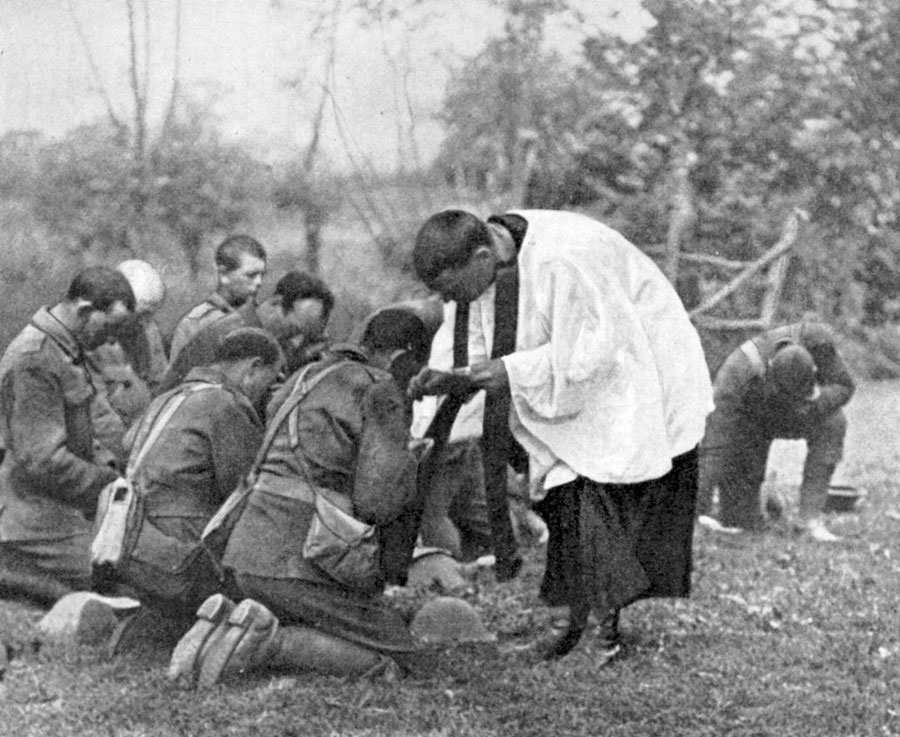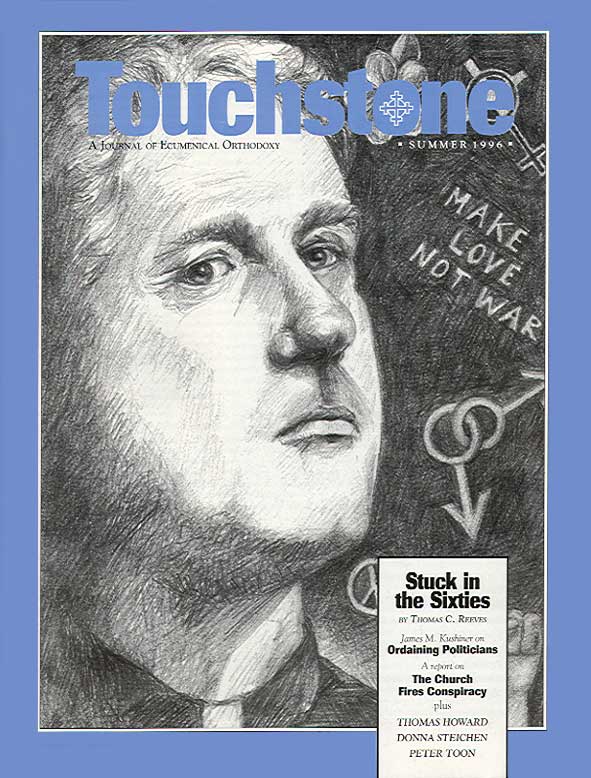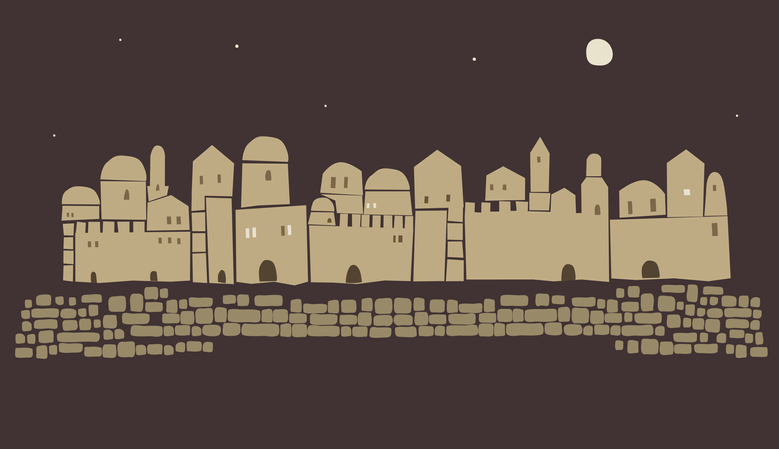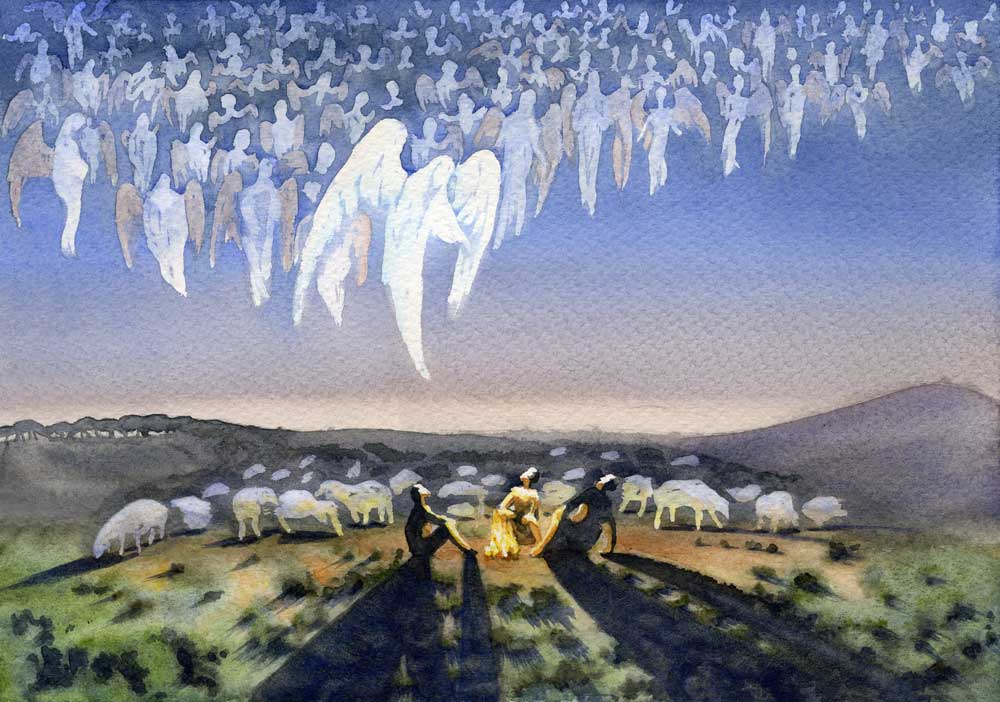Embers of Truth
The Struggle for Faith in Chesterton’s “The Ballad of the White Horse” and Eliot’s “Ash Wednesday”
by Adam Schwartz
In one of the most unfortunate comments yet made about G. K. Chesterton’s writing, Marshall McLuhan maintained that “so impressive is this metaphysical side of Chesterton that it is always embarrassing to encounter the Chesterton fan who is keen about ‘The Ballad of the White Horse’. . .”1 One such embarrassing fan was Christopher Dawson, who wrote to Chesterton in 1932 that when he was an undergraduate, the “‘Ballad of the White Horse’ first brought the breath of life” to the period Dawson was to analyze so brilliantly in The Making of Europe.2 Both W. H. Auden and David Jones, fair poets themselves, also highly praised Chesterton’s poem.3 More recently, his best contemporary critic, Garry Wills, called “The Ballad” a “neglected masterpiece.”4
Such testimony suggests that the “The Ballad” was a more profound poem than McLuhan realized. To understand the spiritual and philosophical depth that motivated this praise that undermines McLuhan’s objection, a comparison of Chesterton’s verse with that of the most metaphysical of modern poets, T. S. Eliot, is helpful, particularly “The Ballad” and Eliot’s “Ash Wednesday.”
Two Purgatorial Poems
Despite Chesterton’s and Eliot’s rather tense personal and professional relationship, they shared a similar intellectual and moral imagination arising from their conversions to Christianity.5 This is particularly evident in “The Ballad of the White Horse” and in “Ash Wednesday,” in which they both outline the state of humanity in the post-Christian world and describe the struggle to attain and retain faith in the midst of it.
Both are purgatorial poems, assessing the effects of sin and pleading for deliverance. In each case, these prayers are answered through the intervention of the Virgin Mary. Finally, both poems end on the note of what Graham Greene describes as the “flame of the Christian religion,” hope.6 Yet this hope is not a facile optimism, for both Chesterton and Eliot acknowledge the struggle against persistent evil that even convinced believers continue to confront.
The Post-Christian Wasteland
Chesterton and Eliot describe the bleakness of a godless world similarly, be it “a lost land / Of boulders and broken men” or residence “among these rocks.”7 Chesterton’s Alfred is “that oft-defeated King / Whose failure fills the land,” while Eliot’s speaker questions why he should even bother to mourn “the vanished power of the usual reign.”8 In both poems, men seek to fill the spiritual vacuum created by the death of God: in Chesterton’s vision “the foes of settled house and creed / Had swept old works away,” while Eliot’s speaker has already succumbed to the temptation to worship strange new gods, “to construct something / Upon which to rejoice.”9
While Alfred and his remnant remain faithful, they are “Like some strange people left on earth / After a judgment day.” Yet it is seemingly a judgment against those who kept the Faith.10 For those demoralized and feeling abandoned, a path of radical self-denial culminating in fatalistic apathy and negation is tempting, as in fact it was to many of Chesterton’s and Eliot’s contemporaries who were drawn to Orientalism and Spiritualism: “Teach us to care and not to care / Teach us to sit still.”11
Enter the Humble Virgin
Adam Schwartz is Assistant Professor of History at Christendom College.
subscription options
Order
Print/Online Subscription

Get six issues (one year) of Touchstone PLUS full online access including pdf downloads for only $39.95. That's only $3.34 per month!
Order
Online Only
Subscription

Get a one-year full-access subscription to the Touchstone online archives for only $19.95. That's only $1.66 per month!
bulk subscriptions
Order Touchstone subscriptions in bulk and save $10 per sub! Each subscription includes 6 issues of Touchstone plus full online access to touchstonemag.com—including archives, videos, and pdf downloads of recent issues for only $29.95 each! Great for churches or study groups.
Transactions will be processed on a secure server.
more from the online archives

35.4—Jul/Aug 2022
The Death Rattle of a Tradition
Contemporary Catholic Thinking on the Question of War by Andrew Latham
calling all readers
Please Donate
"There are magazines worth reading but few worth saving . . . Touchstone is just such a magazine."
—Alice von Hildebrand
"Here we do not concede one square millimeter of territory to falsehood, folly, contemporary sentimentality, or fashion. We speak the truth, and let God be our judge. . . . Touchstone is the one committedly Christian conservative journal."
—Anthony Esolen, Touchstone senior editor








